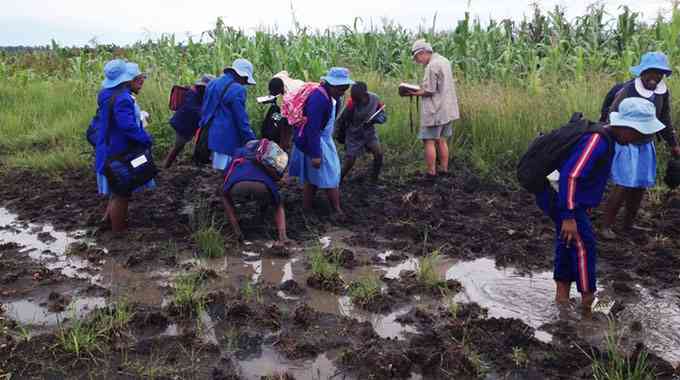
GOVERNMENT is targeting ecological restoration of 350 000 hectares of degraded wetlands in a bid to bring back the integrity of the ecosystems.
Zimbabwe is endowed with diverse flora and fauna species, soil and agricultural biodiversity that are of immense conservation value to its national economy, with biodiversity being the cornerstone of the country’s economy and the livelihood of most locals.
Environment, Climate, Tourism and Hospitality Industry minister Mangaliso Ndhlovu is leading the Zimbabwe delegation which is attending the 15th Conference of the Parties to the United Nations Convention on Biological Diversity in Montreal Quebec, Canada. The conference began on the 7th of this month and ends on the 19th.
This is an international meeting bringing together governments from around the world focusing on protecting nature and halting biodiversity loss around the world.
“Improved financing, continuous engagement of stakeholders including local communities; gender mainstreaming; enhanced law enforcement and establishment of transfrontier conservation areas (TFCAs) with neighbouring countries have all contributed significantly to biodiversity conservation,” Ndhlovu said in an address to the conference on Friday last week.
“Zimbabwe has also embarked on a five-year nationwide wetland restoration initiative targeting ecological restoration of 350 000ha of degraded wetlands in a bid to restore the ecological integrity of the wetland ecosystems and their dependent flora and fauna species.”
Ndhlovu said loss of biodiversity was worrisome, adding that nations needed to take practical measures to stem an imminent catastrophe. 8Zimbabwe’s protected area network coverage is a combined area of about 26% of the country’s total land mass which makes it a well-connected network of biodiverse ecosystems, including TFCA initiatives.
“The loss of biodiversity is extremely worrying and calls for nations to take practical measures to stem this imminent catastrophe,” Ndhlovu said.
- Govt looks to salvage wetlands
- Zim announces plan to protect wetlands
- Water stewardship, plastic waste management are inseparable
Keep Reading
“This rapid decline of biodiversity has serious implications for humanity ranging from the collapse of food production, economic decline, and compromise of health systems among others. We strongly believe that the Post 2020 GBF will provide parties with the necessary guidance and catalyse support for biodiversity conservation.”
Ndhlovu said that Zimbabwe recently completed its first-ever Biodiversity Economy Report as the first step towards the economic valuation of our biological assets.
The ministry is now taking steps to develop a Natural Capital Accounting framework which will include measuring the flow of ecosystem services.
Ndhlovu pointed out that financial resources, technology transfer, capacity building and knowledge management systems are vital in the achievement of new targets.










